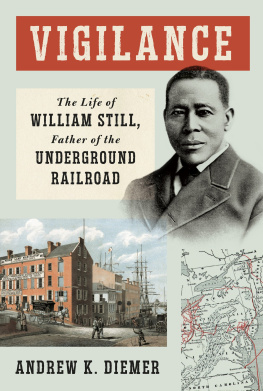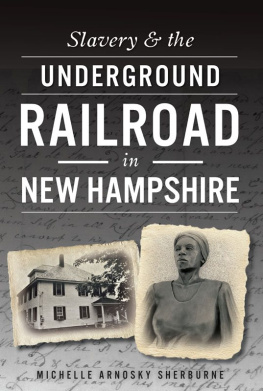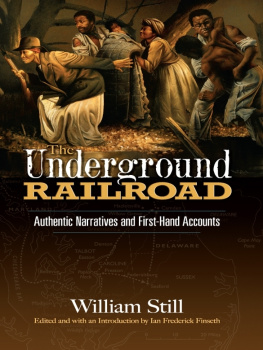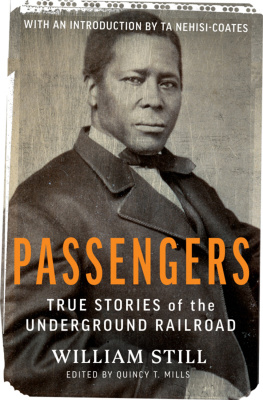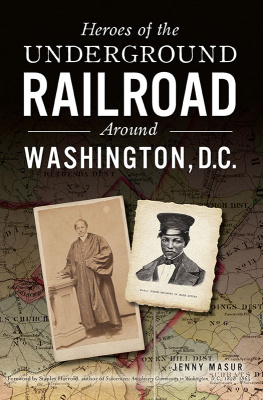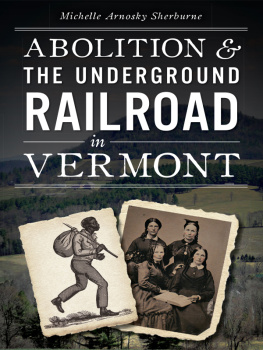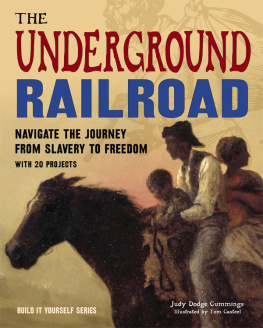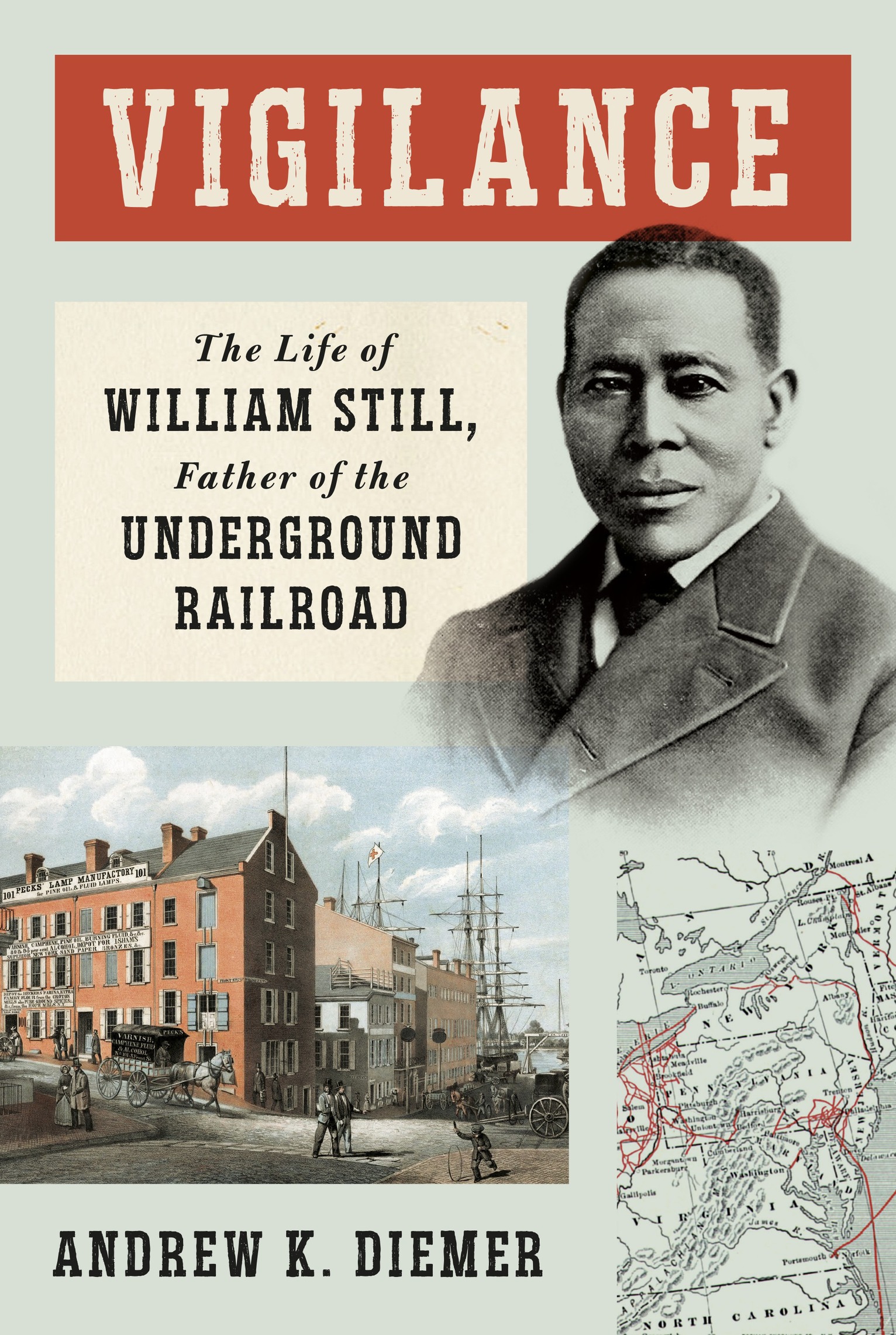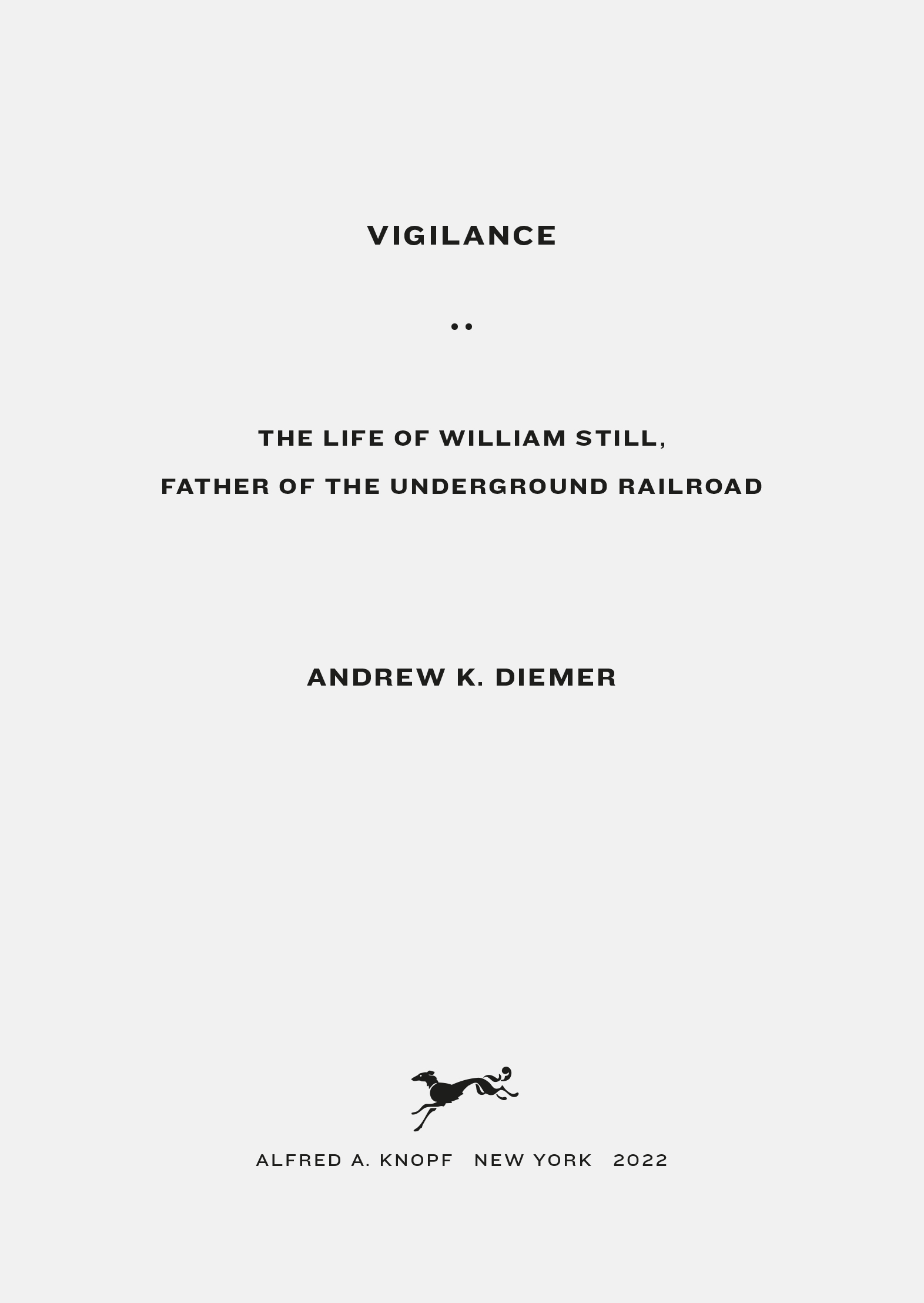ALSO BY ANDREW K. DIEMER
The Politics of Black Citizenship:
Free African Americans in the Mid-Atlantic Borderland, 18171863
THIS IS A BORZOI BOOK
PUBLISHED BY ALFRED A. KNOPF
Copyright 2022 by Andrew K. Diemer
All rights reserved. Published in the United States by Alfred A. Knopf, a division of Penguin Random House LLC, New York, and distributed in Canada by Penguin Random House Canada Limited, Toronto.
www.aaknopf.com
Knopf, Borzoi Books, and the colophon are registered trademarks of Penguin Random House LLC.
Library of Congress Cataloging-in-Publication Data
Names: Diemer, Andrew K., author.
Title: Vigilance : the life of William Still, Father of the Underground Railroad / Andrew K. Diemer.
Other titles: Life of William Still, Father of the Underground Railroad
Description: First edition. | New York : Alfred A. Knopf, 2022. | This is
a Borzoi book published by Alfred A. Knopf. | Includes bibliographical
references and index.
Identifiers: lccn 2022001897 (print) | lccn 2022001898 (ebook) |
isbn 9780593534380 (hardcover) | isbn 9780593534397 (ebook)
Subjects: lcsh : Still, William, 18211902. | African American
abolitionistsPennsylvaniaPhiladelphiaBiography. |
AbolitionistsPennsylvaniaPhiladelphiaBiography. | Underground
RailroadPennsylvaniaPhiladelphia. | Antislavery movementsUnited
StatesHistory19th century. | Fugitive slavesUnited
StatesBiography | Philadelphia (Pa.)Biography.
Classification: lcc E 450. S 85 D 54 2022 (print) | lcc E 450. S 85 (ebook) |
ddc 973.7/114092 [ B ]dc23/eng/20220126
lc record available at https://lccn.loc.gov/2022001897
lc ebook record available at https://lccn.loc.gov/2022001898
Ebook ISBN9780593534397
Cover images: (upper right and spine) William Still. FLHC25 / Alamy; (lower right and back) Underground railroad map. Pictorial Press Ltd. / Alamy; (center) Front and Walnut streets, Philadelphia, c. 1855. Library Company of Philadelphia
Cover design by Jenny Carrow
ep_prh_6.0_141688264_c0_r0
For Marcus
CONTENTS
INTRODUCTION
Peter Freedman saw danger in the unfamiliar faces around him. He had come to Philadelphia looking for parents he had not seen in decades, not since he was a small child. The journey from Alabama had been long and arduous, but now that he was here, he was unsure if he should have come. He remembered an old house on a hill above the Delaware River, but though that river flowed past the city of Philadelphia nothing here looked like it did in his memory. Would he even recognize his parents if he saw them? It had been more than forty years, after all. He remembered his brothers face, and he looked on each dark face he passed, hoping to see some resemblance.
Peter had good reason to be wary. Though he was now legally free, having purchased his own freedom after decades of bondage, he had heard stories of kidnappers who were always on the lookout for unsuspecting Black men like him. He had been told that some of them even posed as abolitionists. Upon arriving in the city, Peter had gone to the boardinghouse of a Black man, Dr. James Bias, a man he was told he could trust, but he was not sure he could. Bias was out of town, but his wife, a bright mulatto woman, with a kind smile and a pleasant voice, welcomed Peter and arranged for a guide who would help him look for his parents. The two walked the city, inquiring among various Black men and women they met if any had known a man named Levin and his wife, Sidney (sometimes spelled Cidney), who had lost two children forty years before.
They spent two days in this search with no success. No one was surprised by Peters story. The kidnapping of Black Philadelphians, especially children, was common, but no one knew Levin or Sidney. It was at this point that Mrs. Bias suggested Peter go to the Anti-Slavery Society office, to a man named William Still who worked there and who kept records of fugitive slaves passing through the city. Perhaps, she thought, there might be some records of his parents there.
Mrs. Bias arranged for the same guide to show Peter the way; it was about six in the evening when they set out. Peter got the sense that this guide did not believe his story, and this only accentuated his anxiety. As they walked through the streets in the late summer heat, the guide stopped occasionally and talked to those he seemed to know. He did so in a low voice that Peter could not make out.
When they finally reached the Anti-Slavery Society office, Peter peered through the window and saw a young Black man, neatly dressed, writing at a desk. They entered the office and the young man they had seen through the window rose to greet them. Peters guide and the young clerk, William Still, seemed to know each other. Still was dark-skinned and fairly tall, with short-cropped hair and strong features.
Good evening, sir, said the guide. Here is a man from the South that says he is hunting for his people; and he wants to make me believe he was born in Philadelphia. Mrs. Bias sent me here with himshe thought possibly you might find the names of his parents on some of your books.
What were you parents names? asked Still.
I was stolen away from the Delaware river, said Peter, with my brother Levin, when I was about six years old. My fathers name was Levin, and my mothers name was Sidney; and we had two sistersone named Merica and the other Charity; though my brother always said that Merica was our cousinWe used to talk a heap about our mother, but nineteen years ago my brother died in Alabama; and now Ive bought my liberty, and come back to hunt for my relations.
Peter felt a subtle change come over the clerk. Still had been courteous at first, but now as Peter told his story Still seemed to become intensely interested. He asked Peter to repeat the names of his parents and older brother. He did so. Still asked if there were any other names, other than those he had already mentioned, that he could remember from his time with his parents. Peter thought for a moment. He remembered a white man, named S.G., who lived near his parents. Peter recalled playing with this mans children.
Still asked Peter if the two might wait for a bit while he finished preparing the mail to be sent. Peter was uneasy, but what could he do? He and the guide sat quietly for a while, waiting for Still to finish his work, all the while keeping watch over the door, half convinced that these two men were conspiring against him.
Eventually, after nearly an hour had passed, Still returned to the two visitors.
It will take some time, he said, to look over those old papers, and this man may as well go home. I will show you the way back to Mrs. Bias.
The guide rose to leave. Peter, relieved at the chance to escape this situation, rose as well. Ill go, too, he said.
No, nostay, said Still. I will do my best to find your friends.
Yes, stayby all means, added the guide. If he will look for them, it isnt worth while to go away now.
Once the guide was gone, Still sat down next to Peter and looked him directly in the face.
Suppose I should tell you that I am your brother?
Supposin you should? responded an incredulous Peter.
Well, continued Still, his voice trembling, from all you have told me, I believe that you are a brother of mine. My fathers name was Levin, and my mothers name is Sidney, and they lost two boys named Levin and Peter, about the time you speak of. I have often heard my mother mourn about those two children, and I am sure you must be one of them.

